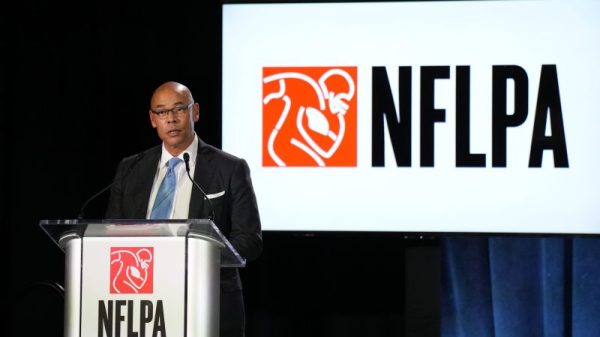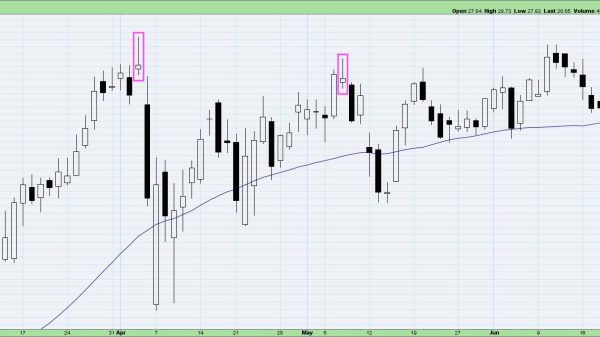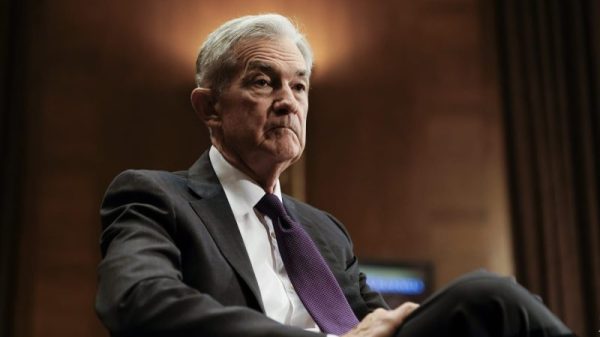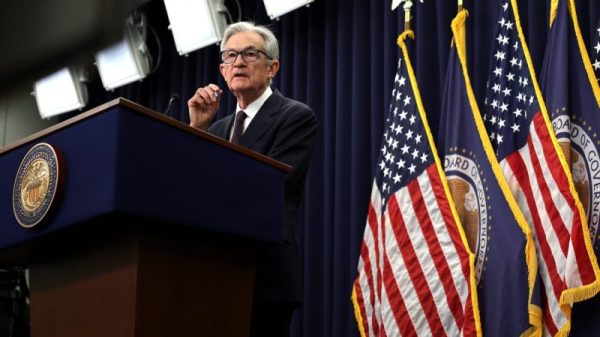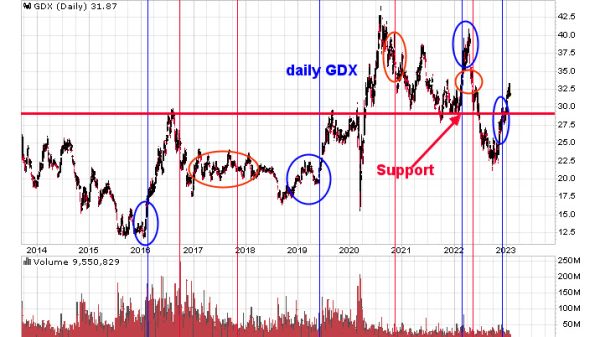President Biden is poised to hail congressional approval of bipartisan legislation that suspends the debt ceiling, curbs federal spending and averts an unprecedented U.S. government default, declaring the measure a significant victory in a 7 p.m. address from the Oval Office.
“Passing this budget agreement was critical. The stakes could not have been higher,” Biden will say, according to excerpts released from the White House. “No one got everything they wanted, but the American people got what they needed. We averted an economic crisis and an economic collapse.”
The comments mark an effort by the president to frame the final result of a rocky negotiating process as a significant achievement, setting the stage for his coming reelection campaign–and for the remainder of a presidential term when he will continue to face a Republican-controlled House. Biden plans to describe the budget deal as a successful effort to compromise with Republicans, who demanded spending cuts, while also protecting key Democratic priorities.
“We’re cutting spending and bringing deficits down,” Biden will say, according to the excerpts. “And we protected important priorities from Social Security to Medicare to Medicaid to veterans to our transformational investments in infrastructure and clean energy.”
The Senate gave final approval to the compromise measure late Thursday, and Biden said in a subsequent he plans to sign the bill into law “as soon as possible.”
White House press secretary Karine Jean-Pierre said the House and Senate have to finalize the legislation before sending it to the president and that the goal was to sign the bill on Saturday.
“We’re going to work very quickly with them to get this done to make sure we can sign it, hopefully as soon as tomorrow,” Jean-Pierre told reporters Friday. “But we have to let the House and the Senate do what they need to do so they can get to us so the president can sign it.”
The Treasury Department has said the government would be unable to pay all its bills on Monday. Jean-Pierre said she was confident that the bill would be signed before then.
The passage of the budget agreement was a significant accomplishment for Biden, not only because it averted a first-ever U.S. government default — which would have devastated the economy at the outset of his reelection campaign — but because it postponed additional debt limit standoffs until after the 2024 election.
Biden is now heading into campaign season with the economy showing resilience, as employers posted 339,000 jobs in May, far more than economists expected. Meanwhile, predictions of chaos engulfing the Southern border after the lifting of pandemic-related restrictions have not so far materialized, and Biden’s top Republican rivals are in open warfare against each other.
Perhaps most important for Biden, the debt agreement allows him to reiterate his central political message — that he is a seasoned, competent leader who notches bipartisan achievements in a highly polarized landscape. The debt measure now joins other bipartisan bills from Biden’s presidency that invested in the nation’s infrastructure, bolstered semiconductor manufacturing, addressed gun violence and helped veterans exposed to burn pits in Afghanistan and Iraq.
Debt ceiling deal
End of carousel
Those bills came at a time when Democrats controlled both chambers of Congress, albeit by razor-thin margins. The debt ceiling deal comes five months after Republicans took control of the House, leaving Speaker Kevin McCarthy (R-Calif.) to preside over his own narrow majority that includes a significant faction of hard-line conservatives.
Still, Biden, 80, must overcome Republicans’ argument that he is a weak leader at a time when polls suggest voters are concerned about his age. Several Republican presidential hopefuls blasted the debt agreement for doing too little to curb spending, with Florida Gov. Ron DeSantis saying on “Fox & “Friends” that it does nothing to change the fact that “our country will still be careening towards bankruptcy.”
And the political aftermath of the agreement between Biden and McCarthy, after months of sometimes acrimonious back-and-forth, remains unclear. The deal established that the two party leaders can come together on an urgent issue despite sharp dissents from some in their parties, potentially laying the groundwork for further bipartisan legislation in the McCarthy era.
Alternatively, McCarthy’s insistence on striking a deal with Biden over the objections of some of his caucus’s most vocal members could increase pressure on him to defy or confront the president at every turn between now and the election in November 2024. Most of the top Republican presidential hopeful have blasted the bipartisan deal, including former president Donald Trump, Florida Gov. Ron DeSantis and Sen. Tim Scott of South Carolina.
The Senate approved the debt measure Thursday night on a 63-36 vote, allowing Biden just days to sign it before Monday, when the government would no longer be able to pay all of its bills without borrowing more.
The deal, which cleared the House 314-117 on Wednesday, suspends the debt ceiling until January 2025. The Congressional Budget Office says the legislation will reduce the deficit by $1.5 trillion over the next 10 years.
No one got everything they wanted. Many liberal Democrats opposed the 99-page Fiscal Responsibility Act, objecting to curbs on government spending and to new work requirements for some recipients of federal food stamps and family welfare benefits. Some conservative Republicans also slammed the agreement for not securing more aggressive spending cuts.
Before approving the bill late Thursday, the Senate rejected 11 proposed amendments. Any changes to the legislation would have required it be sent back to the House, making it very difficult to meet the Monday deadline.
To alleviate concerns from Senate hawks that the bill would prevent lawmakers from adequately funding the Pentagon in a crisis, Majority Leader Charles E. Schumer (D-N.Y.) and Minority Leader Mitch McConnell (R-Ky.) issued a joint statement Thursday saying the “debt ceiling deal does nothing to limit the Senate’s ability to appropriate emergency supplemental funds to ensure our military capabilities are sufficient to deter China, Russia, and our other adversaries.”
In the Senate, Democrats broke 44-4 in favor of the bill, while Republicans split 17-31 against it. Among Independents, Sens. Angus King of Maine and Kyrsten Sinema of Arizona voted yes, while Sen. Bernie Sanders of Vermont voted no.
Understanding the debt ceiling
1/4
End of carousel
“Democrats are feeling very good tonight,” Schumer said after the vote. “We’ve saved the country from the scourge of default. Even though there were some on the other side who wanted default, who wanted to lead us to default.”
McConnell credited House Republicans’ efforts for avoiding a default and curbing “Washington Democrats’ addiction to reckless spending that grows our nation’s debt.”
The debt ceiling caps the amount the U.S. government can borrow to fund obligations and commitments it has already made. The existing debt limit was $31.4 trillion, and the Treasury Department had been using what it called “extraordinary measures” since January to shuffle money around in the federal budget to avoid needing to take on more debt.
Biden has said he might eventually seek to declare the nation’s borrowing limit incompatible with the 14th Amendment of the Constitution, which says that the federal government’s debts must be paid.
Leigh Ann Caldwell, Marianne LeVine and Rachel Siegel contributed to this report.









